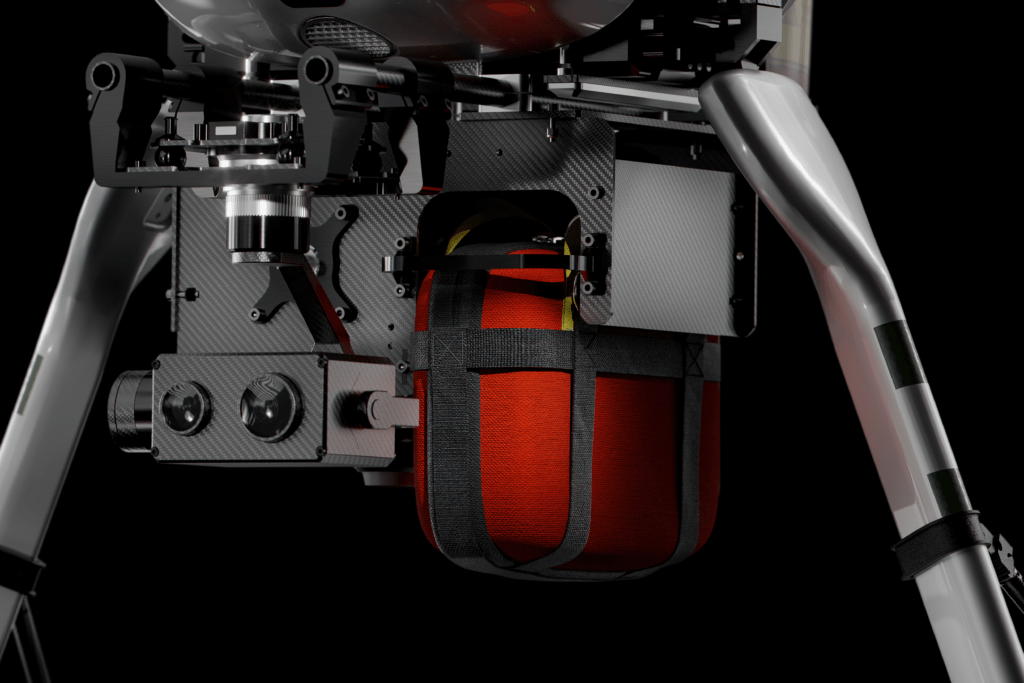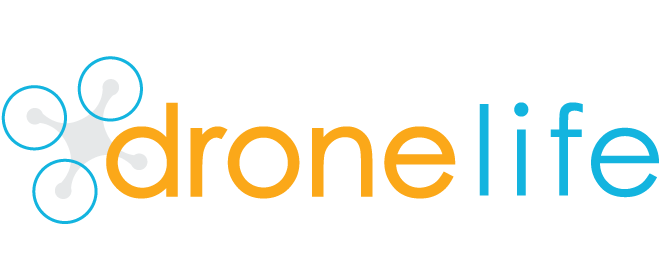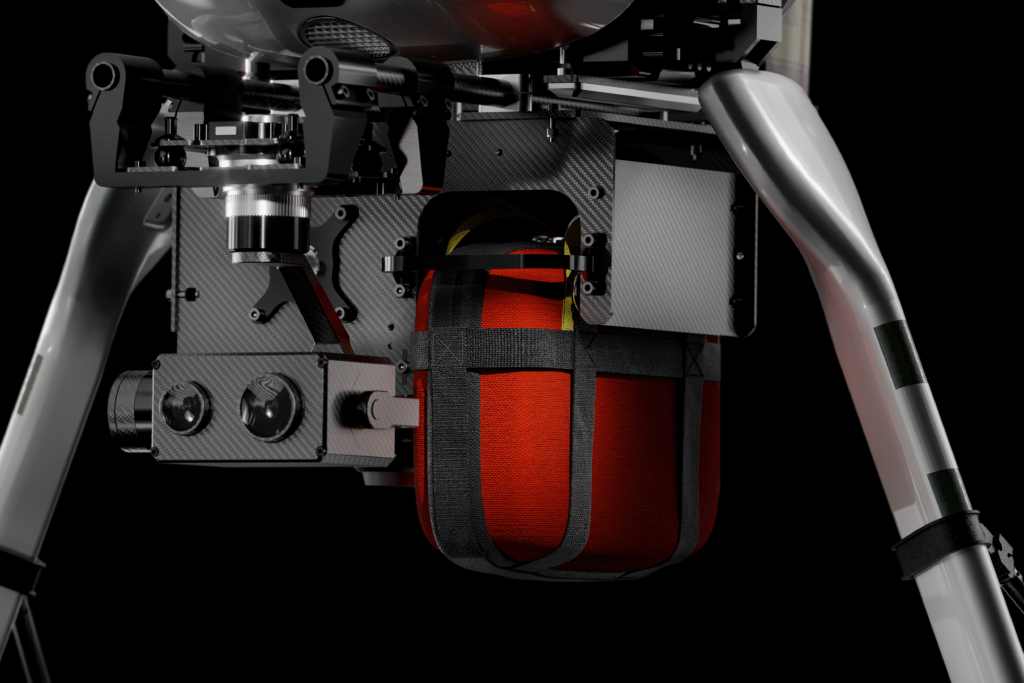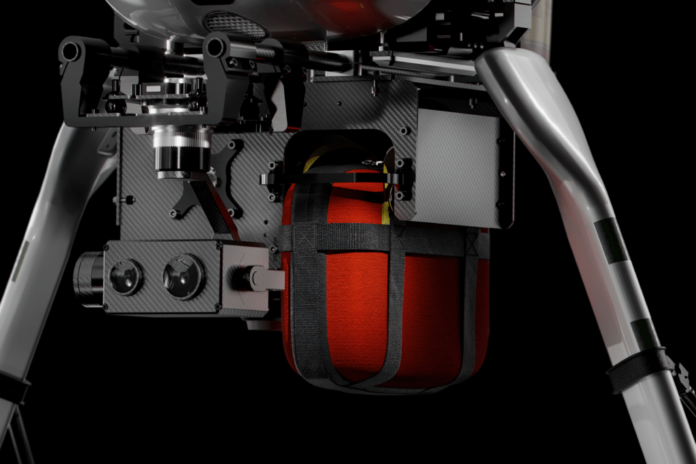
In a groundbreaking study published in Lancet Digital Health, Everdrone’s “First On Scene” AED Delivery Drone Program has been validated for its effectiveness in improving response times and delivering life-saving measures. Partnering with The Center for Resuscitation Science at Karolinska Institutet, Sweden, Everdrone conducted a study in Västra Götaland, which involved 58 AED defibrillator deliveries. The data gathered revealed that the drones arrived in good time before the ambulance in 67% of cases, with a median time benefit of 3 minutes and 14 seconds. These findings highlight the significant impact of drone technology in emergency response, paving the way for future innovations in the field.
Everdrone’s First On Scene AED Delivery Drone Program

This image is property of dronelife.com.
Background
Everdrone, a Swedish manufacturer of first responder-use UAVs, has recently made significant strides in the field of emergency medical services with their “First On Scene” AED delivery drone program. This groundbreaking initiative aims to reduce response times and increase survival rates by utilizing drones to deliver Automated External Defibrillators (AEDs) to cardiac arrest patients in need. The program has gained recognition and validation through a study conducted in collaboration with The Center for Resuscitation Science at Karolinska Institutet, Sweden, and the results have been published in the prestigious Lancet Digital Health journal.
Partnership with The Center for Resuscitation Science
Everdrone’s partnership with The Center for Resuscitation Science has been a crucial component in the development and validation of their First On Scene program. Led by researcher Andreas Claesson, the study was conducted in Västra Götaland, Sweden, from April 21, 2021, to May 31, 2022. During this period, data was gathered from 58 AED defibrillator deliveries, providing valuable insights into the effectiveness and efficiency of Everdrone’s delivery drones in real-life emergency situations.

This image is property of dronelife.com.
Study Details
The study conducted by Everdrone and The Center for Resuscitation Science focused on evaluating the impact of AED delivery drones on response times and patient outcomes. It examined the number of AED defibrillator deliveries made by the drones, analyzed specific case studies, and calculated the median time benefit and maximum advantage provided by the drone deliveries. Additionally, the study took into account various factors such as day/night operations, weather conditions, and terrain to ensure the accuracy and reliability of the results.
Results
The results of the study proved to be highly promising and underscored the effectiveness of Everdrone’s First On Scene program. The statistical analysis demonstrated that the advantages of using AED delivery drones remained significant even after adjusting for confounding variables. Furthermore, a comparison between drone-based first responders and traditional ambulance-based first responders revealed that the drones arrived in a timely manner before the ambulance in 67% of cases. These conclusive findings highlight the potential of AED delivery drones in enhancing emergency medical services and improving patient outcomes.

This image is property of dronelife.com.
Speed and Time-Sensitivity
One of the key factors that sets Everdrone’s First On Scene program apart is its focus on speed and time-sensitivity. Time is of the essence in cardiac arrest cases, and every second counts in increasing the chances of survival. Everdrone has achieved remarkable response times, with an unofficial record of 87 seconds from takeoff to delivery. This exceptional speed not only ensures that AEDs reach patients swiftly but also enables medical professionals to administer life-saving interventions at the earliest possible moment.
Future Innovations
Everdrone’s commitment to innovation is evident in its plans for future developments in drone technology. The company is on the verge of launching its next generation of drones, which are projected to further reduce response times by an additional 30%. This continuous quest for improvement and advancement positions Everdrone as a pioneer in the field of emergency medical services and reinforces its role in shaping the future of drone-based first response systems.

This image is property of dronelife.com.
Everdrone’s Operations
Everdrone’s reach extends beyond its home country of Sweden. The company has established operations in several countries across Europe, including a partnership with a charity organization in England focused on AED delivery. This partnership highlights the growing recognition and adoption of drone technology in the medical industry and sets the stage for expanding the implementation of AED delivery drones to other regions in the future. Additionally, Everdrone provides medical delivery services in Denmark, further showcasing its commitment to revolutionizing emergency medical response.
Growing Awareness of First Responder UAVs
The use of drones as first responders in critical situations is gaining momentum in the medical industry. The success of Everdrone’s First On Scene program and the positive results of the study conducted in collaboration with The Center for Resuscitation Science have shed light on the potential of UAVs in reducing response times and saving lives. As awareness grows and more research is conducted on drone medical services, the integration of these technological advancements into mainstream emergency response systems becomes increasingly inevitable.
More Information about Everdrone
For more information about Everdrone and their groundbreaking First On Scene AED delivery drone program, interested individuals can visit the company’s website. There, they can find detailed information about the program, its benefits, and the latest updates on Everdrone’s technological advancements in the field of emergency medical services.
About the Author
Ian McNabb is a passionate and experienced staff writer based in Boston, MA. With a keen interest in geopolitical affairs, emerging technologies, environmental sustainability, and Boston College sports, Ian brings a diverse perspective to his writing. His expertise and knowledge in these areas make him a valuable contributor to various publications, providing valuable insights to readers worldwide.



